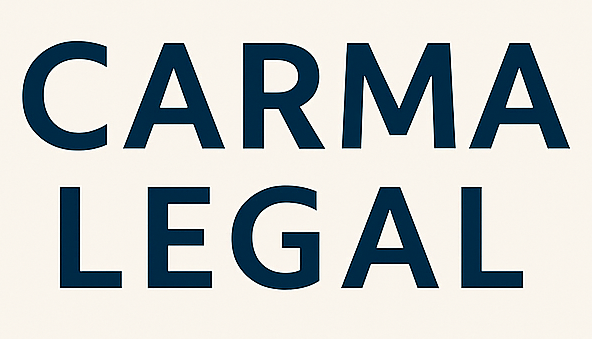When you suspect a loved one has been mistreated, finding an elder abuse attorney can be the crucial step toward holding negligent parties accountable and securing justice. Elder abuse can take many forms, from physical harm to financial exploitation, and navigating these cases requires specialized legal knowledge. With the right advocate by your side, you can focus on supporting your family member while your attorney builds a strong claim on your behalf.
Elder abuse attorneys, also known as nursing home abuse lawyers or assisted living abuse lawyers, understand federal and state laws designed to protect older adults. They have experience investigating incidents in care facilities, gathering evidence, and negotiating with insurance companies or negligent third parties. By securing proper representation early, you increase the chances of a favorable outcome and fair compensation.
Understand elder abuse
Elder abuse covers a range of harmful actions against adults aged 60 or older. This misconduct can occur in private homes, nursing facilities, or assisted living centers. Understanding the scope of elder abuse helps you recognize warning signs and communicate effectively with your legal team.
According to the U.S. Department of Justice, elder abuse includes:U.S. Department of Justice
| Abuse type | Description |
|---|---|
| Physical abuse | Use of force that may result in bodily injury, pain, or impairment |
| Emotional or psychological abuse | Threats, humiliation, intimidation, or isolation leading to emotional harm |
| Financial exploitation | Unauthorized use of an older adult’s assets for another’s benefit |
| Neglect | Failure to provide basic necessities such as food, shelter, medical care, or assistance with daily living |
| Sexual abuse | Nonconsensual sexual contact or exploitation |
Furthermore, about one in ten adults aged 60 and older experience some form of mistreatment, though many cases go unreported [1]. As a result, swift action is vital to protect the health and rights of vulnerable seniors.
Value of legal support
When you work with a dedicated elder abuse attorney, you benefit from:
- Legal expertise in elder justice: Attorneys interpret the Elder Justice Act and related statutes to build a solid legal foundation [2].
- Experience with third-party claims: Skilled lawyers understand how to hold nursing homes, assisted living facilities, staffing agencies, and equipment manufacturers accountable, similar to how a third party injury claim lawyer pursues negligent actors.
- Resource access: A lawyer can enlist private investigators, medical experts, and financial specialists to document abuse, neglect, or exploitation.
- Negotiation and litigation: Your attorney will negotiate with insurance carriers or file lawsuits when needed, ensuring you do not face aggressive defense tactics alone.
- Emotional support: Understanding the stress of elder abuse cases, attorneys often guide families through the process with compassion and clear communication.
Overall, legal support relieves you of procedural burdens and increases the likelihood of fair compensation for medical expenses, pain and suffering, and other damages.
Choose the right attorney
Selecting an attorney with the right qualifications and approach makes a significant difference in the outcome of your case. Consider the following criteria:
Check specialization
Look for lawyers who focus on elder abuse or related fields such as nursing home neglect. Attorneys who handle general personal injury cases may lack the in-depth knowledge required for elder justice issues.
- “Our practice focuses exclusively on elder care litigation,” indicates a strong commitment to this niche.
- If your situation involves neglect in a residential setting, an nursing home neglect lawyer can navigate specific regulatory requirements.
Evaluate experience
Ask about an attorney’s track record:
- Number of elder abuse cases handled
- Success rate in securing settlements or verdicts
- Familiarity with court systems and relevant agencies
For instance, a lawyer who has litigated against large long-term care corporations can leverage past victories to strengthen your claim.
Review client feedback
Testimonials and reviews offer insight into communication style and case outcomes. You want an attorney who keeps you informed, promptly returns calls, and treats you with respect.
Understand fee structures
Most elder abuse attorneys work on a contingency-fee basis, meaning you pay nothing upfront and the lawyer recovers fees from your settlement or verdict. Clarify whether you are responsible for any expenses if a case does not succeed.
Prepare for your case
Gathering comprehensive documentation helps your attorney build a compelling narrative. Make sure to collect:
- Medical records detailing injuries or illnesses
- Photos of injuries, living conditions, or neglected areas
- Financial statements showing unexplained withdrawals or transfers
- Care facility reports, progress notes, or incident logs
- Contact information for witnesses such as staff members or other residents
- Personal journals or notes on changes in behavior or condition
In addition, keep a detailed timeline of events. Dates, times, and descriptions of incidents make it easier to reconstruct what happened and demonstrate a pattern of neglect or abuse.
Navigate the legal process
While every case is unique, the typical stages you will encounter include:
1. Initial consultation
During this meeting, you discuss the facts with your attorney. Bring all relevant documents and be prepared to describe:
- Nature of the suspected abuse
- Names of involved parties
- History of complaints or facility responses
Your lawyer will assess the viability of your claim, explain legal options, and outline next steps.
2. Investigation and evidence gathering
Your attorney may:
- Hire medical experts to evaluate injuries
- Engage financial analysts to trace asset transfers
- Interview witnesses such as caregivers and family members
This phase often involves coordinating with Adult Protective Services or law enforcement when criminal conduct is suspected.
3. Demand and negotiation
Once evidence is compiled, your lawyer issues a demand letter to the liable parties, specifying:
- Facts of the case
- Legal basis for liability
- Compensation sought for damages
Insurers or defense counsel typically respond with settlement offers. Your attorney negotiates to maximize the amount you receive without resorting to trial.
4. Litigation and trial
If negotiations fail, your attorney files a formal lawsuit. Pretrial procedures include discovery, depositions, and motions. At trial, both sides present evidence and argue before a judge or jury. A verdict or settlement can occur at any point in this process.
Ask key questions
Before hiring an elder abuse attorney, make sure to ask:
- How many elder abuse cases have you handled to conclusion?
- What is your success rate in securing settlements or jury awards?
- Will you personally oversee my case or assign it to a junior attorney?
- How do you communicate case updates and how often?
- What expenses should I expect during the process?
- Do you have experience with cases involving financial exploitation or neglect?
These questions help you gauge the attorney’s competence and compatibility with your expectations.
Know your protections
Multiple laws safeguard older adults, and awareness of these statutes strengthens your confidence in pursuing a claim.
Federal law
- The Elder Justice Act of 2010 is the first comprehensive federal legislation addressing elder abuse, neglect, and exploitation. It supports research, victim services, and Adult Protective Services systems [2].
State laws
Each state defines abuse and exploitation differently. Below are a few examples:
| State | Definition summary |
|---|---|
| Missouri | Exploitation includes infliction of physical, sexual, emotional injury, financial exploitation, and bullying by any individual [3]. |
| Florida | A person in trust knowingly obtains or uses a vulnerable adult’s resources for their own benefit, depriving the elder of use or possession [3]. |
| Iowa | Taking unfair advantage of a dependent adult’s physical or financial resources without informed consent, through deception, duress, or false representation [3]. |
In addition, every state has mandatory reporting requirements for caregivers and professionals who suspect abuse. Your attorney will ensure these protocols are followed to protect victims and strengthen your case.
Take next steps
Securing the right legal advocate helps you navigate complex regulations and hold negligent parties accountable. If you suspect abuse or neglect, reach out for a free consultation to discuss your situation in confidence. An experienced nursing home abuse lawyer or assisted living abuse lawyer can guide you through each step and fight for the justice and compensation you deserve.
Time is of the essence. Evidence can disappear, memories may fade, and statutes of limitations vary by state. By taking action now, you protect your loved one’s rights and well-being. Contact a qualified elder abuse attorney today and start the path toward accountability and healing.








